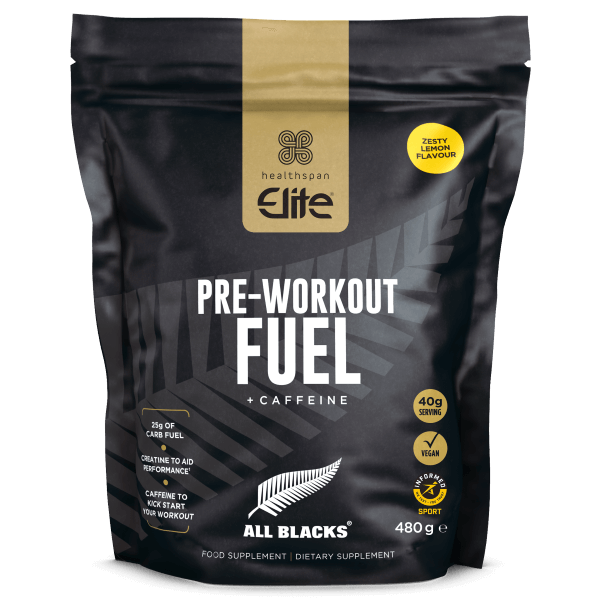January is not the easiest month for training, even for a dedicated sportsperson. Personal trainer Lucy Gornall shares her advice for getting back on track.
🕒 4 min read
The days are cold and short, and getting out of bed in the morning (when many of us might prefer to train) can be a real struggle. Add a sense of post-Christmas gloom, and hitting our training targets, and so getting the new year off to a good start, might seem almost impossible.
Here's what I recommend to clients when it comes to overcoming that January slump and getting back in the swing of training.
1. Remember your 'why'
The start of the year is a great time to set goals. Perhaps you want to hit a 5K personal best, master a set of pull-ups or compete in a bike race come spring – but whatever it is, keep your 'why' in the back of your mind to spur you on when your motivation to train wavers.
2. Start slow
Trying to jump back into training wherever you left off might be a little bit optimistic, in terms of DOMS (delayed onset muscle stiffness) and injury.
Start small; opt for lighter weights for strength training, or fewer repetitions (which will also work if you do bodyweight exercises), to help you work your way back up to full strength without requiring extra recovery time.
This will also give your tendons (which attach muscle to bone and produce and absorb force during high-impact movements) time to regain elasticity, reducing the risk of injury.
The good news is that any decline in strength and fitness during the Christmas break is probably not as big as we fear.
A review published in Sports Medicine found that elite rugby and American football players could go three weeks without training before losing strength.1 In addition, regaining strength is known to be faster than gaining it for the first time, as muscles 'remember' the adaptations that they have made in the past – so it's rarely a case of starting from square one.
With regards to cardiovascular fitness, it is a similar timeframe, with a study published in 2018 showing that recreational marathon runners lost approximately 3.6% of their blood volume (thought to be the leading cause for early losses in cardiovascular capacity) after four weeks of minimal exercise.2,3
3. Get the right kit
The right kit is important all year round, but during the winter months, having a waterproof jacket, thermal leggings or snood could be the difference between getting out to train and taking a day off. Likewise proper torches or fluorescent clothing, which are essential for the shorter days.
For keeping warm, layers are ideal; try wearing skin-tight, long-sleeved tops in sweat-wicking fabrics underneath thicker items of clothing. Cotton is best avoided as a base layer.
4. Try a pre-workout
If you're lacking in energy and haven't fuelled correctly, a training session is unlikely to sound appealing. This is a common problem in January if we're trying to cut back after December's indulgences.
A small carb-based snack is ideal, such as a banana, a small bowl of oats or a couple of crackers with a low-fat spread. There are also multitude of different pre-workout supplements available to help support the body during exercise and boost performance.
Common ingredients include creatine, caffeine, beta-alanine, branched-chain amino acids and nitrates. Look for the Informed Sport logo to ensure your supplements are safe for athletes.

Elite All Blacks Pre-Workout Fuel + Caffeine
Lemon-flavoured pre-workout blend with creatine, fast-release carbs and caffeine to kick-start your workout
- 26g maltodextrin carbohydrate per serving
- Added creatine to increase physical performance
- 150mg caffeine per serving
5. Treat workouts like an appointment
Most of us balance a number of commitments alongside our training, which can mean that workouts get demoted or sidelined.
Be strict and put your training in your diary as an appointment (like a work meeting or important call) that you can't cancel or move, and that the rest of your day needs to fit around.
6. Team up
In the same vein, pairing up with a teammate or training buddy is another way to stay on track with your training – plus it can help you work harder.
A 2009 study done with the Oxford University rowing crew measured pain tolerance after tough training sessions performed in a group or alone. The findings showed that the rowers' pain threshold was almost doubled after a group session, versus the same session completed alone.4
The ability to push harder in a group session is a useful advantage when you need it – just take care to incorporate enough recovery sessions (and interchange it with solo training if the group environment is likely to cause excessive competitiveness and over-training.)
7. Just start!
Finally, often the most helpful – but hardest – thing is just to get going again.
Many of us often feel guilty about the distractions of the festive season, but once you have that first workout under your belt, you'll be back on track.










